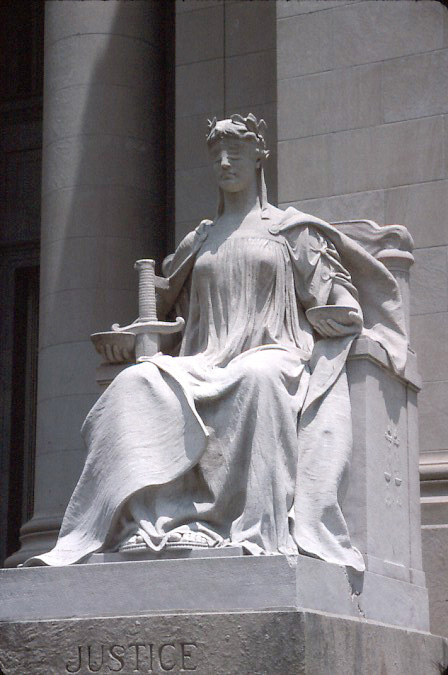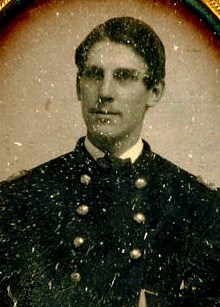|
Skepticism In Law
Skepticism in law is a school of jurisprudence that was a reaction against the idea of natural law, and a response to the 'formalism' of legal positivists. Legal skepticism is sometimes known as legal realism. According to Richard Posner, "The skeptical vein in American thinking about law runs from Holmes to the legal realists to the critical legal studies movement, while behind Holmes stretches a European skeptical legal tradition that runs from Thrasymachus (in Plato's Republic) to Hobbes and Bentham and beyond". Origin ''Skepticism'' (American English and Canadian English) or ''scepticism'' (British English and Australian English) is a philosophical approach that includes a scientific method and a rejection of unevidenced claims to certainty. Skepticism has been known in various degrees. Pyrrho was the first philosopher who developed it to a high degree. Greek Sophist were also skeptics. Protagoras was a famous Greek Sophist. Greek Sophists were also law teachers. Writi ... [...More Info...] [...Related Items...] OR: [Wikipedia] [Google] [Baidu] |
Sophist
A sophist ( el, σοφιστής, sophistes) was a teacher in ancient Greece in the fifth and fourth centuries BC. Sophists specialized in one or more subject areas, such as philosophy, rhetoric, music, athletics, and mathematics. They taught ''arete'' – "virtue" or "excellence" – predominantly to young statesmen and nobility. In the present day, however, a sophist refers to someone who deliberately argues using fallacious arguments or reasoning, in order to mislead; see the section below. Etymology The Greek word el, σοφός, sophos, a wise man, label=none is related to the noun el, σοφία, sophia, wisdom, label=none. Since the times of Homer it commonly referred to an expert in his profession or craft. Charioteers, sculptors, or military experts could be referred to as in their occupations. The word has gradually come to connote general wisdom and especially wisdom in human affairs such as politics, ethics, and household management. This was the meaning ascr ... [...More Info...] [...Related Items...] OR: [Wikipedia] [Google] [Baidu] |
Hans Kelsen
Hans Kelsen (; ; October 11, 1881 – April 19, 1973) was an Austrian jurist, legal philosopher and political philosopher. He was the author of the 1920 Austrian Constitution, which to a very large degree is still valid today. Due to the rise of totalitarianism in Austria (and a 1929 constitutional change), Kelsen left for Germany in 1930 but was forced to leave his university post after Hitler's seizure of power in 1933 because of his Jewish ancestry. That year he left for Geneva and later moved to the United States in 1940. In 1934, Roscoe Pound lauded Kelsen as "undoubtedly the leading jurist of the time". While in Vienna, Kelsen met Sigmund Freud and his circle, and wrote on the subject of social psychology and sociology. By the 1940s, Kelsen's reputation was already well established in the United States for his defense of democracy and for his Pure Theory of Law. Kelsen's academic stature exceeded legal theory alone and extended to political philosophy and social theory ... [...More Info...] [...Related Items...] OR: [Wikipedia] [Google] [Baidu] |
Jerome New Frank
Jerome New Frank (September 10, 1889 – January 13, 1957) was an American legal philosopher and author who played a leading role in the legal realism movement. He was Chairman of the Securities and Exchange Commission, and a United States circuit judge of the United States Court of Appeals for the Second Circuit. Early life, education, and career Born in New York City, New York, Frank's parents were Herman Frank and Clara New Frank, descendants of mid-19th-century German Jewish immigrants.Yale University Library Guide to the Jerome New Frank Papers - Biographical History Frank's father, also an attorney, relocated the family to |
Oliver Wendell Holmes, Jr
Oliver Wendell Holmes Jr. (March 8, 1841 – March 6, 1935) was an American jurist and legal scholar who served as an associate justice of the Supreme Court of the United States from 1902 to 1932.Holmes was Acting Chief Justice of the United States in February 1930. He is one of the most widely cited U.S. Supreme Court justices and most influential American common law judges in history, noted for his long service, pithy opinions—particularly those on civil liberties and American constitutional democracy—and deference to the decisions of elected legislatures. Holmes retired from the court at the age of 90, an unbeaten record for oldest justice on the Supreme Court.John Paul Stevens was only 8 months younger when he retired on April 12, 2010. He previously served as a Brevet Colonel in the American Civil War, in which he was wounded three times, as an associate justice and chief justice of the Massachusetts Supreme Judicial Court, and as Weld Professor of Law at his alm ... [...More Info...] [...Related Items...] OR: [Wikipedia] [Google] [Baidu] |
Oliver Wendell Holmes Jr Circa 1930-edit
Oliver may refer to: Arts, entertainment and literature Books * ''Oliver the Western Engine'', volume 24 in ''The Railway Series'' by Rev. W. Awdry * ''Oliver Twist'', a novel by Charles Dickens Fictional characters * Ariadne Oliver, in the novels of Agatha Christie * Oliver (Disney character) * Oliver Fish, a gay police officer on the American soap opera ''One Life to Live'' * Oliver Hampton, in the American television series ''How to Get Away with Murder'' * Oliver Jones (''The Bold and the Beautiful''), on the American soap opera ''The Bold and the Beautiful'' * Oliver Lightload, in the movie ''Cars'' * Oliver Oken, from ''Hannah Montana'' * Oliver (paladin), a paladin featured in the Matter of France * Oliver Queen, DC Comic book hero also known as the Green Arrow * Oliver (Thomas and Friends character), a locomotive in the Thomas and Friends franchise * Oliver Trask, a controversial minor character from the first season of ''The O.C.'' * Oliver Twist (character ... [...More Info...] [...Related Items...] OR: [Wikipedia] [Google] [Baidu] |
Pragmatism
Pragmatism is a philosophical tradition that considers words and thought as tools and instruments for prediction, problem solving, and action, and rejects the idea that the function of thought is to describe, represent, or mirror reality. Pragmatists contend that most philosophical topics—such as the nature of knowledge, language, concepts, meaning, belief, and science—are all best viewed in terms of their practical uses and successes. Pragmatism began in the United States in the 1870s. Its origins are often attributed to the philosophers Charles Sanders Peirce, William James, and John Dewey. In 1878, Peirce described it in his pragmatic maxim: "Consider the practical effects of the objects of your conception. Then, your conception of those effects is the whole of your conception of the object."Peirce, C.S. (1878), " How to Make Our Ideas Clear", ''Popular Science Monthly'', v. 12, 286–302. Reprinted often, including ''Collected Papers'' v. 5, paragraphs 388–410 an ... [...More Info...] [...Related Items...] OR: [Wikipedia] [Google] [Baidu] |
John Stuart Mill
John Stuart Mill (20 May 1806 – 7 May 1873) was an English philosopher, political economist, Member of Parliament (MP) and civil servant. One of the most influential thinkers in the history of classical liberalism, he contributed widely to social theory, political theory, and political economy. Dubbed "the most influential English-speaking philosopher of the nineteenth century", he conceived of liberty as justifying the freedom of the individual in opposition to unlimited state and social control. Mill was a proponent of utilitarianism, an ethical theory developed by his predecessor Jeremy Bentham. He contributed to the investigation of scientific methodology, though his knowledge of the topic was based on the writings of others, notably William Whewell, John Herschel, and Auguste Comte, and research carried out for Mill by Alexander Bain. He engaged in written debate with Whewell. A member of the Liberal Party and author of the early feminist work ''The Subjection o ... [...More Info...] [...Related Items...] OR: [Wikipedia] [Google] [Baidu] |
Austin
Austin is the capital city of the U.S. state of Texas, as well as the seat and largest city of Travis County, with portions extending into Hays and Williamson counties. Incorporated on December 27, 1839, it is the 11th-most-populous city in the United States, the fourth-most-populous city in Texas, the second-most-populous state capital city, and the most populous state capital that is not also the most populous city in its state. It has been one of the fastest growing large cities in the United States since 2010. Downtown Austin and Downtown San Antonio are approximately apart, and both fall along the Interstate 35 corridor. Some observers believe that the two regions may some day form a new "metroplex" similar to Dallas and Fort Worth. Austin is the southernmost state capital in the contiguous United States and is considered a " Beta −" global city as categorized by the Globalization and World Cities Research Network. As of 2021, Austin had an estimated populati ... [...More Info...] [...Related Items...] OR: [Wikipedia] [Google] [Baidu] |
Jeremy Bentham
Jeremy Bentham (; 15 February 1748 Old_Style_and_New_Style_dates">O.S._4_February_1747.html" ;"title="Old_Style_and_New_Style_dates.html" ;"title="nowiki/>Old Style and New Style dates">O.S. 4 February 1747">Old_Style_and_New_Style_dates.html" ;"title="nowiki/>Old Style and New Style dates">O.S. 4 February 1747ref name="Johnson2012" /> – 6 June 1832) was an English philosopher, jurist, and social reformer regarded as the founder of modern utilitarianism. Bentham defined as the "fundamental axiom" of his philosophy the principle that "it is the greatest happiness of the greatest number that is the measure of right and wrong." He became a leading theorist in Anglo-American philosophy of law, and a political radical whose ideas influenced the development of welfarism. He advocated individual and economic freedoms, the separation of church and state, freedom of expression, equal rights for women, the right to divorce, and (in an unpublished essay) the decriminalising of homosex ... [...More Info...] [...Related Items...] OR: [Wikipedia] [Google] [Baidu] |
Mickey Dias
Reginald Walter Michael "Mickey" Dias Bandaranaike QC (3 March 1921 – 17 November 2009) was a barrister, academic and author of leading works on jurisprudence and the law of tort. He was the first Law Fellow of Magdalene College, Cambridge, Director of Studies and Professor of Jurisprudence. Early life and education Born in Colombo, Ceylon (now Sri Lanka) on 3 March 1921 to the Dias family which had strong connections to the law. His father was Dr Felix Reginald Dias Bandaranaike II, Puisne Justice, and his mother was "Princess" Joy De Livera. The Dias family included Sir Harry Dias Bandaranaike, Judge of the Supreme Court and Acting Chief Justice, Felix Reginald Dias Bandaranaike I (grandfather), Judge of the Supreme Court. His half brother was Felix Dias Bandaranaike who later served as the Minister of Justice and Minister of Finance of Ceylon. Dias was educated at Royal Preparatory School and later at Royal College Colombo. He attended the Ceylon Law College and in 1939, ... [...More Info...] [...Related Items...] OR: [Wikipedia] [Google] [Baidu] |
William James
William James (January 11, 1842 – August 26, 1910) was an American philosopher, historian, and psychologist, and the first educator to offer a psychology course in the United States. James is considered to be a leading thinker of the late 19th century, one of the most influential philosophers of the United States, and the "Father of American psychology". Along with Charles Sanders Peirce, James established the philosophical school known as pragmatism, and is also cited as one of the founders of functional psychology. A ''Review of General Psychology'' analysis, published in 2002, ranked James as the 14th most eminent psychologist of the 20th century. A survey published in ''American Psychologist'' in 1991 ranked James's reputation in second place, after Wilhelm Wundt, who is widely regarded as the founder of experimental psychology. [...More Info...] [...Related Items...] OR: [Wikipedia] [Google] [Baidu] |


_~1930_©_Georg_Fayer_(1892–1950)_OeNB_8026867.jpg)




_-_William_James_in_Brazil%2C_1865.jpg)